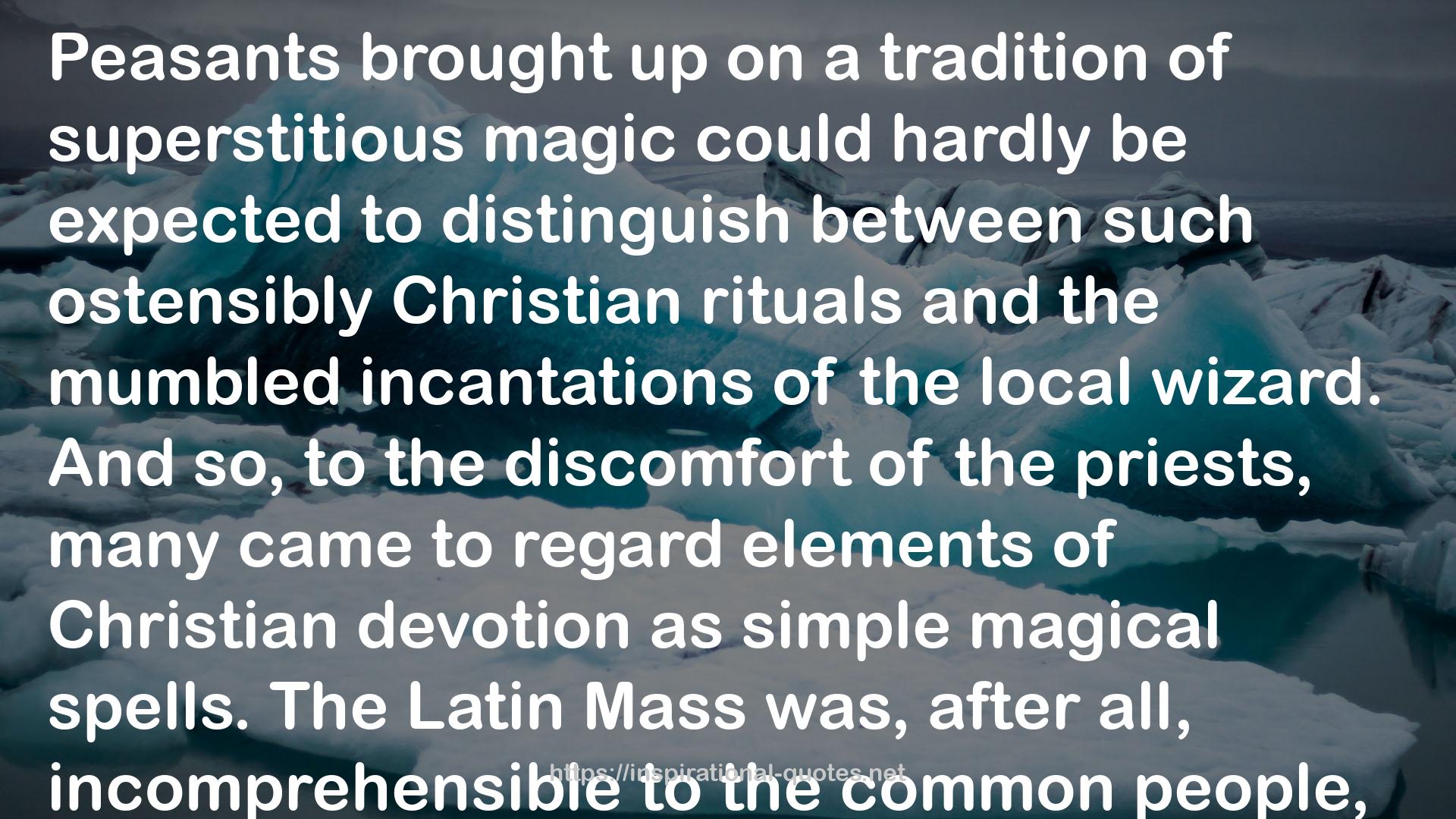The Devil's Doctor: Paracelsus and the World of Renaissance Magic and Science QUOTES
8 " We watch Paracelsus in Basle as though seeing a man run headlong toward a precipice. Like an indestructible lunatic, he will do so again and again throughout his life. "
9 " Hippocrates can be justifiably regarded as the father of Western medicine, and he stands in relation to this science as Aristotle does to physics. Which is to say, he was almost entirely wrong, but he was at least systematic. "
12 " Forty of Paracelsus's theological manuscripts still survive, as well as sixteen Bible commentaries, twenty sermons, twenty works on the Eucharist, and seven on the Virgin Mary. Half of these have never been properly edited, let alone printed in modern form. There is no question that Paracelsus thought long and hard about Christianity, and by styling himself a professor of theology (without, it seems, any official academic sanction) he implies that he regarded this component of his output to be the equal of his medical and chemical theories. That his role in the history of science and medicine has received far more attention than his theological oeuvre is, however, understandable and probably apt, for it cannot be said that he had much influence even on the religious debates of his day. In theology he never aspired to be a Luther, and that would in any case have been a futile aspiration for one so lacking in political acumen or the ability to foster disciples. "
13 " ...a copy of his Ninty-five Theses, a formal declaration of his arguments against indulgences. This is the document that Luther is said to have nailed to the church door in Wittenberg on October 31, 1517. If it happened at all, it was not quite as dramatic as it sounds—this was not an uncommon way to distribute pamphlets and polemics, and the Theses, written in Latin, would not have been accessible to most of the lay townspeople. But the timing—on the eve of All Saints' Day—made the challenge auspicious, and the document was soon thereafter distributed in a German translation by a local printer. "
14
" Some say that the spiritual founder of the Rosicrucians was Paracelsus himself. In Huser's edition of his Prognostication Concerning the Next Twenty-four Years there is a woodcut of a child looking toward a heap of Paracelsus's books, some inscribed with a capital R and one bearing the word Rosa. But the significance of this imagery for the Rosicrucians seems spurious.* The rose that the secret society chose as its symbol is in fact derived from the emblem of Martin Luther, in which a heart and cross spring from the center of the flower. The movement began as a society of Protestant Paracelsians founded by the alchemist Johann Valentin Andreae of Herrenberg.
*The Paracelsus connection remains puzzling, however. In the first edition of the Philosophia Magna, published by Birckmann in 1567, the Hirschvogel woodcut of Paracelsus appears in modified form with various strange images in the background that later became clearly associated with Rosicrucianism, such as a child's head emerging from a cleft in the ground. What is the significance of these symbols, fifty years before the Rosicrucian movement came into the open? "
15 " I while yet a youth wrote in a quite large volume three books of magical things, which I called De occulta philosophia, in which whatever was then erroneous because of my curious youth, now, more cautious, I wish to retract by this recantation, for formerly I spent much time and goods on these vanities. "
- Passionate Declarations: Essays on War and Justice
- Howard Zinn on Democratic Education
- Disobedience and Democracy: Nine Fallacies on Law and Order
- The Politics of History
- A Young People's History of the United States
- The Bomb
- The People Speak: American Voices, Some Famous, Some Little Known: Dramatic Readings Celebrating the Enduring Spirit of Dissent
- A People's History of the United States: The Civil War to the Present
- Terrorism and War
- Voices of a People's History of the United States

